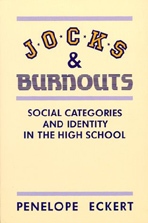
The core emphasis is on change, both in linguistic resources and their use and in gender and sexual ideologies and personae. The authors integrate issues of sexuality more thoroughly into the discussion, exploring more diverse gendered and sexual identities and practices. This new edition, thoroughly updated and restructured, brings out more strongly an emphasis on practice and change, while retaining the broad scope of its predecessor and its accessible introductions which explain the key concepts in a non-technical way. But it is precisely the fact that gender seems self-evident which makes the study of gender interesting.Summary: "Language and Gender is an introduction to the study of the relation between gender and language use, written by two leading experts in the field.


This is not easy, for gender is so central to our understanding of ourselves and of the world that it is difficult to pull back and examine it from new perspectives. Doing this requires that we suspend what we are used to and what feels comfortable, and question some of our most fundamental beliefs. It is precisely because gender seems natural, and beliefs about gender seem to be obvious truth, that we need to step back and examine gender from a new perspective. As scholars and researchers, though, it is our job to look beyond what appears to be common sense to find not simply what truth might be behind it, but how it came to be common sense. The world swarms with ideas about gender – and these ideas are so commonplace that we take it for granted that they are true, accepting common adage as scientific fact.

Gender is embedded so thoroughly in our institutions, our actions, our beliefs, and our desires, that it appears to us to be completely natural. It is ever-present in conversation, humor, and conflict, and it is called upon to explain everything from driving styles to food preferences. We are surrounded by gender lore from the time we are very small.


 0 kommentar(er)
0 kommentar(er)
